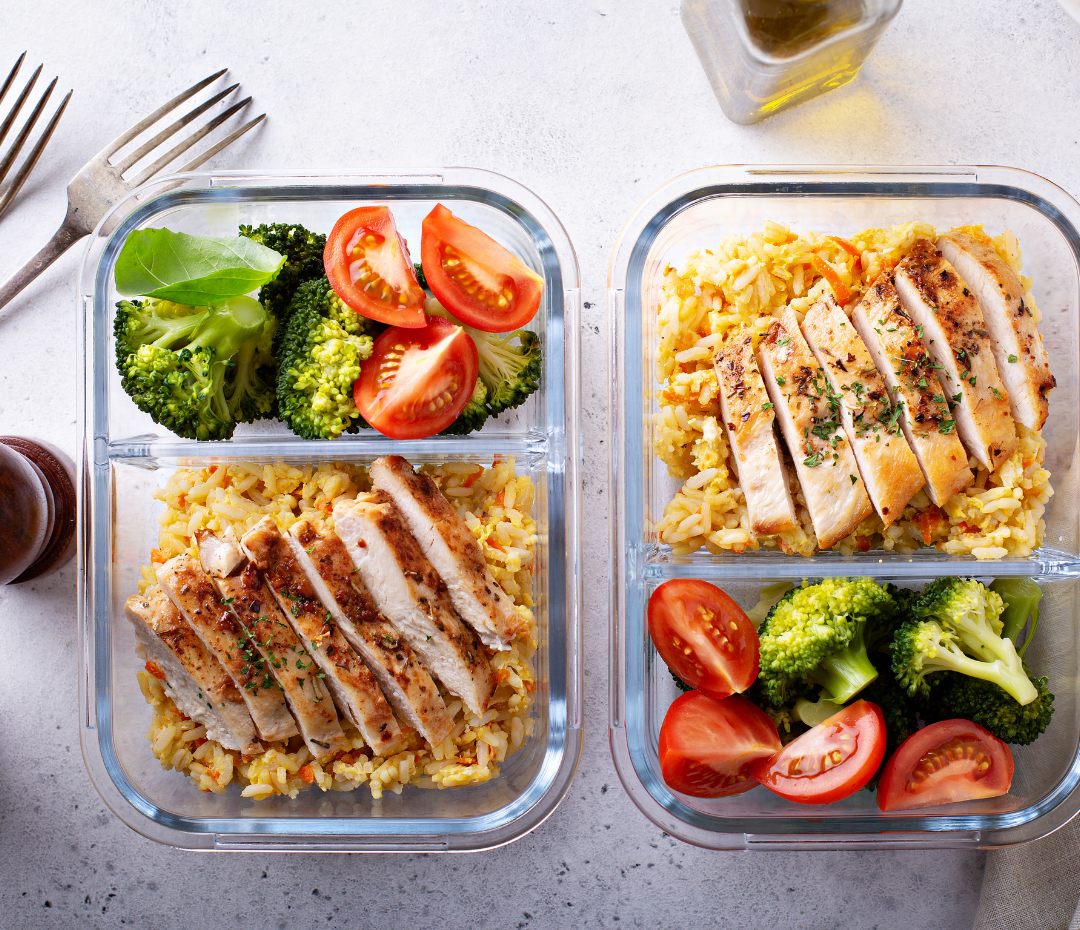I used to view meal preparation as a cumbersome method that required too much thinking and effort. The idea of planning out my meals each week did not sound fun.
On the contrary, I love to cook delicious and nutritious meals. Still, I hated the idea of putting myself into a structured routine only to result in inconsistency, disappointment, and failure.
Now, as a health coach who truly understands the value of forming long-term habits and structure to support a healthy lifestyle, the idea of meal preparation slowly crept back into my life as a valuable tool to lean on. Meal preparation is meant to make our lives easier, not harder.
In fact, meal preparation isn’t a one-size-fits-all approach, and it doesn’t have to be difficult. There are different layers and flavors to it according to everyone’s unique preferences, schedules, and lifestyles. In this blog post, I’ll show you how meal preparation can take on three approaches and how you can develop a plan and take action based on the approach that best suits your lifestyle.
Who is Meal Preparation for?
Meal preparation is perfect for those with:
- Busy schedules
- A need for structure when it comes to cooking
- A desire to get into better eating habits
- A desire to manage and save money
- A desire to drop some unwanted pounds
3 Categories of Meal Preparation
I like to place meal preparation into three categories: Advanced, Moderate, and Flexible.
If you’re like most people who don’t have the time to think about what they’ll eat each day and prepare the meal but have the desire and motivation to plan and prepare it in advance, then an advanced approach is the way to go.
The advanced approach is what I like to call the classic way to meal prep. You take time to plan out each meal for each day of the week (assuming you prep within a 1-week time frame). You then shop for the ingredients and prepare all of your meals for the entire week by portioning them out into containers or freezer-safe packaging (except for salads, which I always recommend making the day of to uphold freshness). An example of this may look like shopping on a Saturday and prepping, cooking, and portioning out your meals on a Sunday.
In a perfect world, the advanced approach sounds great. Who wouldn’t want to know what they’re having each day of the week and have the meal ready? Less time spent in the kitchen means more time spent elsewhere, right? But there is no such thing as perfection. That’s why I’m introducing the moderate and flexible approach. They still offer the benefit of structure but without the rigidness and headache of not following it 100%.
With the moderate approach, you still plan out your meals for each day of the week, but you reserve time for 1 or 2 flex days during the week (also known as “cheat” days). You may choose these days based on when you’re the busiest or when you have an event or scheduled outing.
In addition to choosing your flex days, you may choose the main shop/prep day (let’s say on a weekend) and then add a prep/cook day in the middle of the week. The benefit here is that you’re not having to cook everything at once, but rather breaking it out into a couple of checkpoints throughout the week. This helps keep the meals fresh and exciting and offers the benefit of flexibility in your schedule.
An example of the moderate approach might look like this: you cook and shop on a Saturday, prepare the first half of your weekly meals on a Sunday, and then cook the remaining half of your meals on a Wednesday, and then repeat.
Now, let’s say the moderate approach is still too much work. Some of us need room to think freely and plan as we go. That’s where the flexible approach comes in nicely. You still incorporate the planning aspect by roughly figuring out what you will eat each day of the week (taking into account the flex days or other outings that may involve food).
You may decide to keep a weekend day as your main shopping day, or you may shop throughout the week, assuming you know exactly what you’re buying. The only difference is that you prepare and cook most of your meals the day before or the day of. This allows you to switch things up during the week if needed, easily, and to be a little more creative in your cooking.
However, if you are taking a flexible approach to meal prep and you have a somewhat busy schedule, I would still recommend keeping the meals as simple as possible. That will help cut back on time in the kitchen and time spent cleaning up. You also avoid the risk of overeating since you are not portioning out your meals with this approach. The simpler and less complex the meals are, the less likely you are to indulge in seconds or thirds.
My final word on meal preparation
Building strong habits takes time, dedication, and discipline. As humans, we need structure and routine to set us up for success. That’s why meal preparation is a great tool to get yourself back on track with healthy eating. It will not only enhance your nutrition but will save time, energy, and unwanted calories.
Which of the three approaches above you take is entirely up to you. You might even decide to customize one of them further according to your specific needs and preferences. The idea is to simply add some structure to your eating routine so that you can build healthy eating habits and see results!
Written by Health Coach Lydia, NBC-WHC




